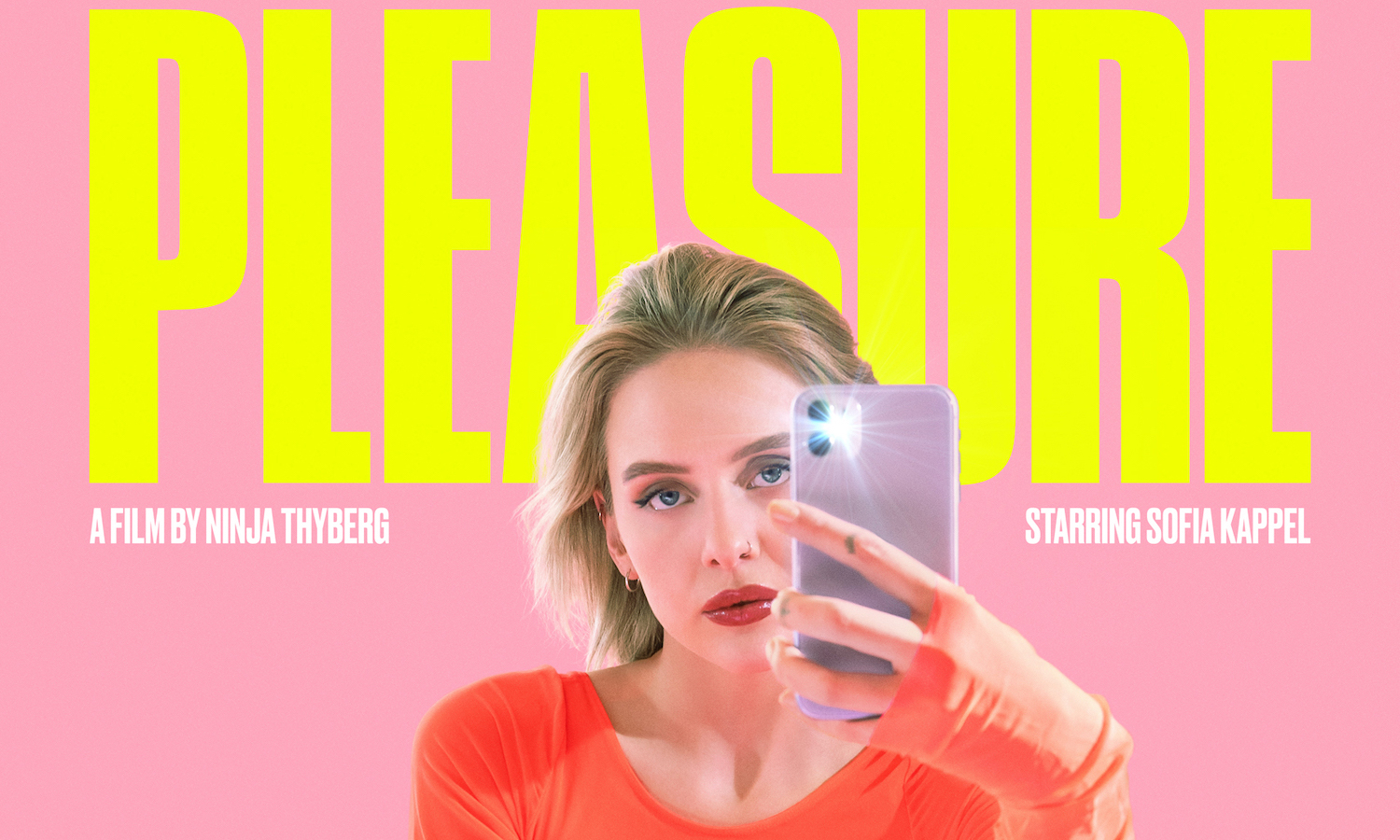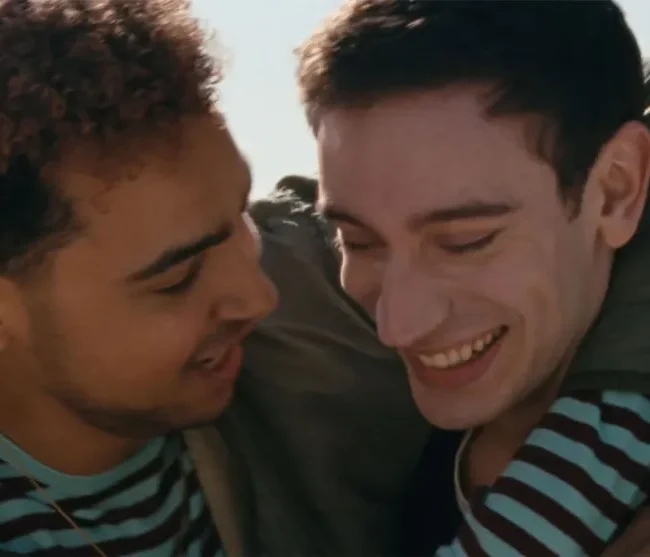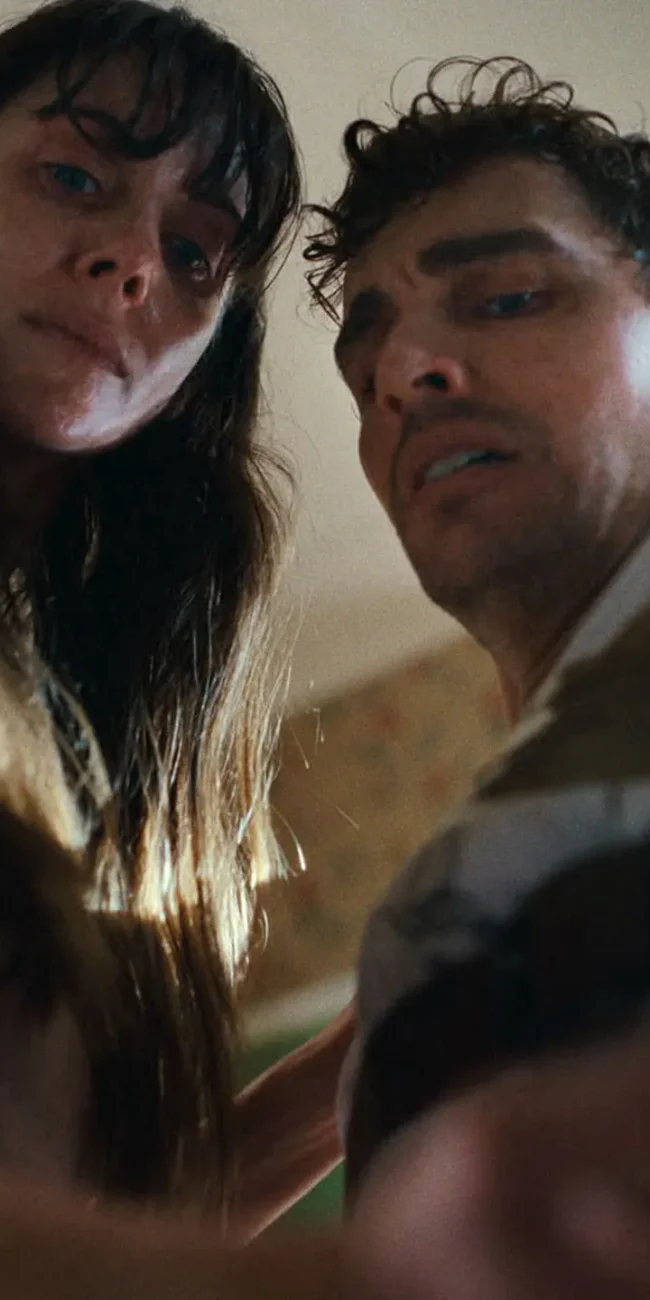A Conversation with Ninja Thyberg (PLEASURE)

Pleasure, one of the most provocative films of Sundance 2021 finally makes its theatrical debut from Neon this spring. The film follows Bella Cherry (Sofia Kappel), “fresh off the plane” from Sweden with neon dreams of conquering the porn industry. As she moves from naïve rookie to seasoned pro, her soul slowly slips away from her one negotiation at a time. The film, written and directed by Ninja Thyberg, is based on an equally uncompromising short that premiered at Sundance in 2013 that I haven’t been able to get my mind off of ever since.
I had a chance to speak with Thyberg back during the movie’s premiere and I’ve been waiting ever since to get this interview out there because I think this is the best attempt to capture the current industry and why it holds such possibilities for potential starlets.
Hammer to Nail: What about the short made you want to expand upon it? What were you most excited to kind of dive into and spend more time with?
Ninja Thyberg: I mean, when I did the short, I already knew that I wanted to make a feature, so I used the short. The intention was to use it somehow as some kind of pilot, because I wasn’t, in my career, [at] the place where it felt possible at that time, or realistic to make a short feature. But then because of the short, that it did so well, and that it won an award in Canada and competed in Sundance that actually made it possible to do the feature. I felt that I was very well educated on the subject because I’ve been studying the subject for, or like dealing with it, being interested in it for such a long time, from different various angles. I had done a lot of research for the short, but the research was done from my computer at home, like reading books or watching documentaries and Googling and reading stuff online.
In interviews and talking about the film, I kept saying, “I want to show the real people behind the porn stereotypes.” But then I started more and more to feel like that was a bit false, because I didn’t know the real people and I was just making it all up, based on theoretical ideas. So I felt that I needed to go and find the story in the actual world, in the real world. I started in 2014 to travel to LA. During four years, I slowly were able to dig my way into the core center of the porn industry and really got to know this world. Then I based the script on everyone that I got to know and everything that I got to see. I decided. I never did porn myself, but besides that, or except from that, I try to come as close to Bella as possible. So I also lived in a modern house for a while with some other girls. I had a lot of people from the industry read the scripts because it was really important for me to do it.
HtN: It’s really great work that you did in that. It’s one of those things like, most people, they won’t know whether or not you got it right, but for the people who care, you really did justice to them. I’ve been working on a documentary that’s set in sort of the S&M online dominatrix world for the last several years, so I’ve been tertiarily connected to this porn industry as well. I was really impressed with the depth of all of all the people that you showed us. I really felt like, like you captured humans, which was great.
NT: Thank you. A shift that I had was that when I started, I was really focusing on like the people in the porn industry. But now I would say that the film is more about our society, because it’s something happened like, when I came in there, I still looked at them as the others. So like looking at them and observing them. But the closer I got, the more I started to identify with them. Turning around and actually looking back at where I came from and starting seeing the power structures in the porn industry as a metaphor for…it’s actually also a film about the mainstream world and our society and power structures in our society.
HtN: It’s interesting. My favorite sequence is when she starts to say that she sees herself now as a submissive and it’s like she discovered something. To me, there’s a lot about that idea of dominance and submission in the film, in terms of how she has to submit to this career, give of herself and trust completely, and it’s terrifying. Sometimes you’re putting your trust in the people that you shouldn’t be. A lot of times you are, it seems like. I felt like you really captured that central conflict. I’m curious about, as a character, her relationships with the other girls in the house. When she starts, she’s a little standoffish, and naturally everybody’s going to be competitive. Then there’s that sense of when she gets to the next level things are going to. Can you talk about how you structured the interactions with the other girls in the model house and how they would play into the script?
NT: Yeah. Joy, who becomes her friend…to me, my heart is with Joy in a way, because I feel that Bella is, compared to the other girls, she’s very spoiled, because she comes from work…spoil is a negative word, maybe it’s unfair to call her that. But I can also, I can really relate…I mean, she’s a version of me somehow. Coming from Sweden where we have…we are so sick…we don’t know anything about poverty. I actually, coming to the US, I remember thinking like, “No one could do porn for money. There must be other reasons.” Because it can’t be worth it just for money. I come from a country where money is not that much of an issue, because even if you don’t have money, that just means that you can’t buy a nice bag, but you can still have somewhere to live, you’re still educated, you still have health care and everything. Just realizing, world apart we are like. If you really are vulnerable in another way, when you don’t have a social, like welfare, in that sense.

A still from PLEASURE
She’s looking down on the girls in the model house that she comes to, in the beginning, because they are trashy to her. That class aspect is also really important for me. To me, it’s really there, but maybe a bit hidden, it’s not the obvious story. But to me, that’s a very important part of the film as well. That’s when it comes to the Spiegler girls [porn talent agent Mark Speigler, an actual person], the girls that becomes the star in the industry are usually women who are not in porn because they need the money, they are more privileged. The more privileged you are, the more likely it is for you to also be able to have a better. They own better sets and have a more safe working surroundings.
HtN: The original short, I’m assuming, was set in Sweden, because people were speaking in Swedish. Obviously, at one point in time, you had to decide, “Well, the feature is going to be in America.” And you knew that that was going to change things…
NT: Yeah, because we don’t really have a porn industry in Sweden. But I discovered that like halfway through the project, that it doesn’t exist. It used to do during the nineties, but there is no industry, there are no porn stars in Sweden. It was just…
HtN: Everybody comes to America.
NT: I mean, we have one famous porn star in Sweden Puma Swede and she’s not even doing any porn anymore. She used to do it, then she came back to Sweden and is still living as if she’s a porn star or using that. But no, we don’t have porn stars, really.
HtN: I’m assuming that since you had your character coming to America, you’re learning American culture, she’s learning American culture and putting it into the script. It actually doesn’t change the writing of it all that much, except you have to do the research or to look at it from everybody else. But what was the experience like seeing America through her eyes as this character, as you were putting the script together?
NT: It was very fascinating because for me, the film is also about the American dream in many ways, seen from a Swedish perspective. I would say the differences between me and Bella Cherry is that leaving Sweden, she hates Sweden, because she really believes in the American dream. And maybe I don’t believe in the American dream as much as she does. I don’t actually, at all.
HtN: It’s okay, I won’t be hurt. I won’t be offended that you don’t believe in the American dream.
NT: But she really does. In that way. It’s interesting because we consume so much American culture in Sweden, we are very Americanized in that sense. But at the same time…I thought that we were.. I didn’t know that there’s actually a lot of differences between mentality. It’s been so interesting to understand American culture, and also to understand American feminism, because Swedish feminism and American feminism is in many ways total opposite. Have the opposite idea of how some problems should be solved. To understand and try to build that bridge between… How to move forward together somehow.
HtN: I’m fascinated by that. Can you give me an example of a difference between how an American feminist and a Swedish feminist would look at an issue?
NT: Yeah. A very typical thing in Sweden is that we really believe in the utopia. Like, what’s the ideal world? And that’s where we base our opinions, the strategies. Our strategies are based on like, “Yeah, we can change the world, it can be like an utopian world.” But then you don’t really deal with here now, because here and now is not how it’s supposed to be. So that’s a very big difference. When it comes to sex work, for example. In Sweden, feminists, they don’t want sex work to exist, because it shouldn’t be like that, people shouldn’t need sex for money. So then we are against it in all the ways. In America it’s much more about like being proud of who you are, much more an individualistic approach and like, “Do the best of what you have.” And like, “Deal with your own situation in the best way.”
One big difference also is the view on gender. In Sweden, we think that gender is a social construction and that we are all equal, men and women. Femininity and masculinity, in our ideal society, should be erased, in a way. That we are… Ideal world would be like, you don’t really have clear like divisions between men and women in behavior. Femininity and masculinity is seen as a negative thing. I would say a lot of the American feminism is about embracing your feminine side, trying to give the feminine side more status, and that you shouldn’t be ashamed. If you want to look pretty, you should be allowed to look pretty and not being pushed down because…to give femininity higher status, rather than trying to erase it.
– Bears Rebecca Fonté (@BearsFonte)
Neon; Pleasure movie review; Ninja Thyberg











